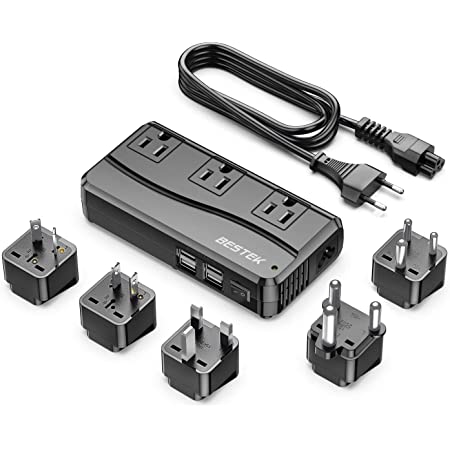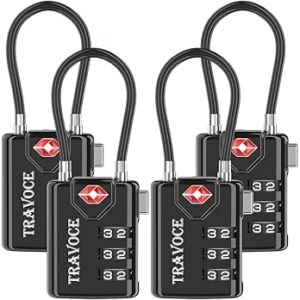Plug For Bhutan: What You Need To Know
What is the plug for Bhutan? Before you travel, check the information below to make sure your electronic devices are compatible with the outlet type and voltage.
Electrical Summary
Bhutan uses outlet types C, D, G at a voltage of 230V and a frequency of 50 Hz.
Plug Compatibility: Type C, Type D, Type G
Voltage: 230V
Frequency: 50 Hz
Type C

Type D

Type G

Can North Americans use Electronics in Bhutan without an Adapter?
No! North Americans will need an adapter for the outlets and a transformer for the voltage when traveling to Bhutan. North Americans device plugs will not work with the outlet types in Bhutan. Also, the voltage in Bhutan is different from North American voltages.
Can Europeans use Electronics in Bhutan without an adapter?
Yes! Most Europeans do not need a travel adapter or transformer when traveling to Bhutan. Most device plugs will work with the outlet types in Bhutan. Also, the voltage in Bhutan is the same as in Europe.
What Outlet does Bhutan Use?
Type C

Type D

Type C plug sockets have two round pins and no grounding pin. These plugs are typically used with devices that have a voltage of 230V.
Type D plug sockets have three round pins and a grounding pin. These plugs are typically used with devices that have a voltage of 230V.
Type G

Type G plug sockets have three rectangular pins and a grounding pin. These plugs are typically used with devices that have a voltage of 230V.
Recommended Products:
Should I use a VPN when traveling?
YES! Using a VPN when traveling is highly recommended to protect your online privacy and security. Public Wi-Fi networks in hotels, airports, and cafés are often unsecured, making you vulnerable to hackers and data theft. A VPN encrypts your internet connection, safeguarding sensitive information like passwords and banking details. It also allows you to bypass geo-restrictions, granting access to streaming services and websites that may be blocked in certain countries. Additionally, a VPN helps prevent government surveillance and ISP tracking. For a seamless and secure browsing experience while traveling, choose a reliable VPN with fast speeds and strong encryption.
Bhutan Travel Essentials:
Is it safe to drink water in Bhutan?
To be on the safe side, you can use common precautions such as boiling tap water for at least one minute, using water purification tablets, or drinking bottled water. It’s also important to note that ice may be made from tap water and that foods may be washed or prepared with tap water.
We recommend always packing a filtered water bottle when traveling!
Travel Essentials
Be sure to check our list of travel essentials before your trip!
Should I get travel insurance when traveling to Bhutan?
It is generally recommended to get travel insurance when traveling to a different country. Travel insurance can provide financial protection and peace of mind in case of unexpected events, such as medical emergencies, trip cancellations, lost or stolen baggage, or other travel-related mishaps.
Travel insurance can cover various expenses related to your trip, such as medical expenses, emergency medical transportation, trip cancellation or interruption, lost or stolen baggage or personal belongings, and other travel-related expenses.
Before purchasing travel insurance, it’s important to carefully review the policy details, including the coverage limits, exclusions, and any applicable deductibles or copays. You should also make sure that the policy covers any activities or destinations that you plan to participate in or visit during your trip. Click here to price Travel Insurance for Bhutan
Travel Summary
The country is known for its stunning natural beauty, with snow-capped mountains, lush forests, and crystal-clear rivers. Visitors can explore this natural wonderland by going on treks and hikes through the various national parks and nature reserves, such as the Jigme Dorji National Park or the Phobjikha Valley.
One of Bhutan’s most iconic sites is the Tiger’s Nest Monastery, a sacred Buddhist site perched on a cliff face 3,000 meters above sea level. Visitors can hike to the monastery, which offers breathtaking views of the surrounding valley and is said to be the birthplace of Bhutanese Buddhism.
Bhutan is also famous for its emphasis on happiness and well-being, which is reflected in its unique Gross National Happiness index. Visitors can learn more about this philosophy by interacting with the friendly locals and visiting traditional villages and markets.
To visit Bhutan, travelers must apply for a visa through a licensed Bhutanese tour operator, who will arrange all necessary travel arrangements and accommodations. The country has a limited number of tourists each year to preserve its cultural heritage and natural environment, so it’s best to plan well in advance.
Overall, Bhutan is a peaceful, serene, and spiritually enriching destination that offers a unique and unforgettable travel experience.
Traveling to another country? Check out our Countries page for more info on countries like Nepal, Myanmar, Bangladesh, Sri Lanka, India, Laos, Mongolia, Cambodia





